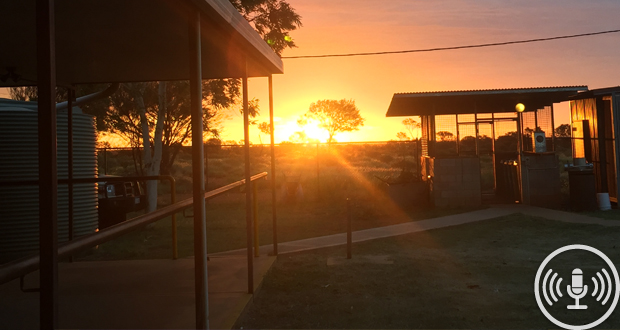Stronger specific cultural training for working with Indigenous communities is needed prior to being deployed, in order for nurses to provide culturally safe and holistic care.
That’s the message one assistant in nursing is asking for.
Melissa Haydock said while nurses are given an overview of Indigenous history and cultures, concepts like cultural safety and education should be in place to improve cultural sensitivity.
Haydock said her time in remote settings emphasised the necessity for Indigenous and non-Indigenous healthcare providers to intensify the sharing of knowledge, known as ‘working malparara way’, meaning sharing experiences both ways.
She added that while the orientation course for her work provided insight to her employment, she did not know she was heading into an environment of such pronounced diversity.
The aged care facility covered 250,000km2, comprising 11 communities and six skin groups.
Since 2012, Haydock has worked in various aged care facilities. Her 10-week stint at a facility in the Gibson Desert in Western Australia was the only remote work she had done, but she is returning for another tenure and hopes to work as an RN in remote areas after graduating.
She described the opportunity as “most certainly an experience like no other I have had".
Haydock said she rapidly became conscious that she was under-prepared and questioned how she was to uphold the nursing code of ethics, as she could not communicate with the elderly.
She set about learning basic words in the residents' language through a language dictionary found in the staff room, and asking the Indigenous lifestyle employee, who helped her interpret and pronounce the words.
“Every morning when showering one of the residents, she would teach me how to say body parts in her language.”
“But just when I felt like I had some of the basics under control, another female resident became clearly distressed. I could not understand what she was saying and was desperate to help her. When I asked (the lifestyle employee), she replied, 'I don’t know what she is saying.'
“I later discovered there are four languages spoken on these lands,” Haydock said.
Haydock recounted that while it is taboo for women to interact with men, the lack of male carers meant there was no choice.
“Every time I attended to the personal care of one man in particular, I could see the sadness in his eyes. I could see he was uncomfortable. I struggled to hide my shock at the scars on his body left from men’s business. I simply did not comprehend, though his humiliation was obvious,” she said.
Haydock joins us to share more about her experiences.
Do you have an idea for a story?Email [email protected]
 Aged Care Insite Australia's number one aged care news source
Aged Care Insite Australia's number one aged care news source

